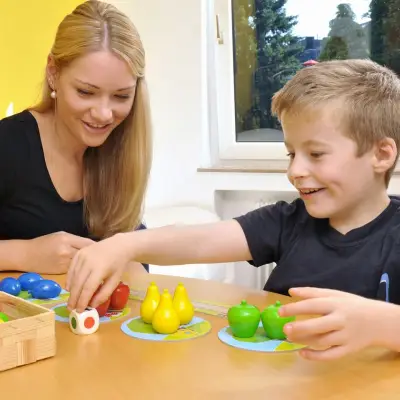Recovering from birth trauma can be a deeply personal and sometimes challenging journey. If you're here, you might be seeking understanding, guidance, or perhaps a sense of community and validation for what you've experienced.
Whether it's for you or someone you care about, understanding birth trauma and navigating the path to recovery is a step towards healing. Let's explore this topic to find out what exactly is birth trauma and how you can recover from it.
Jump to:
- What is Birth Trauma?
- What Counts as a Traumatic Birth?
- Psychological Effects of Birth Trauma
- Can Birth Trauma Affect the Child?
- Traumatic Birth Recovery and Therapy
- Support Networks and Resources
- Healing and Moving Forward
- Looking Ahead: Life After Traumatic Birth
- Frequently Asked Questions About Birth Trauma
- Study Postnatal Depression Awareness for £29
What is Birth Trauma?
Birth trauma refers to the psychological distress experienced by mothers following childbirth. It can result from a traumatic birth experience, which might include emergency interventions, feelings of loss of control, lack of support, or fear for their own or their baby's safety. Traumatic births can lead to postnatal Post-Traumatic Stress Disorder (PTSD), known as birth trauma PTSD, affecting mothers’ mental and emotional well-being. It can also lead to mental health struggles such as anxiety and postnatal depression.

What Counts as a Traumatic Birth?
A traumatic birth can vary widely from one person to another. Any childbirth experience that leaves you feeling traumatised, powerless, or fearful can be classed as traumatic. This might be due to various reasons, including:
- Emergency Medical Interventions: Such as emergency Cesarean sections (C-sections), the use of vacuum extractors or forceps, and urgent procedures needed to address complications.
- Perceived or Real Danger: Experiences where the life of the mother or baby is believed to be at risk, regardless of the outcome.
- Lack of Consent or Control: Situations where medical interventions were performed without the full consent or understanding of the mother or where she felt she had no control over her birth experience.
- Inadequate Support or Communication: Feeling unsupported, isolated, or misunderstood by healthcare providers or lacking the necessary information to make informed decisions during labour and delivery.
- Physical Injury to Mother or Baby: This includes tearing, birth injuries to the baby, or complications resulting from the delivery method.
- Extremely Prolonged or Painful Labour: Labours that are significantly longer or more painful than anticipated, leading to exhaustion and distress.
- Psychological Distress During Labour: Including intense fear, helplessness, or a feeling of being overwhelmed that persists after the birth.
- Postpartum Complications: Such as severe postpartum haemorrhage, infections, or other health issues following delivery that can compound the trauma.
- Neonatal Intensive Care Unit (NICU) Admission: The baby being admitted to the NICU immediately after birth, leading to separation and significant worry for the newborn's health.
- Disappointing or Negative Healthcare Experiences: Encounters with healthcare professionals that leave the mother feeling belittled, ignored, or traumatised by the manner in which her care was handled.
Recommended for you!
Best SellersPsychological Effects of Birth Trauma
The psychological impact can be long-lasting, leading to symptoms of PTSD, anxiety, depression, and difficulty bonding with your baby. You may experience flashbacks, nightmares, severe anxiety, and an ongoing sense of danger or dread.
Can Birth Trauma Affect the Child?
Many parents worry about the impact of birth trauma on their child, and it's natural to feel concerned about your little one's future. It's important to remember that the bond between you and your child, along with the love and care you provide, plays a significant role in their emotional and developmental well-being.
While there is some discussion about the potential impacts of traumatic birth experiences, the outcomes for each child are unique, and a nurturing environment can make a world of difference. The resilience of children, supported by a loving and attentive parent, can overcome many challenges. If you have concerns, reaching out to a healthcare professional can provide you with tailored advice and reassurance to support both you and your child's well-being.

Traumatic Birth Recovery and Therapy
Recovering from birth trauma is a deeply personal journey that unfolds at its own pace. It involves tender steps towards healing your heart and body, acknowledging that each day may feel different. Seeking support through traumatic birth counselling is a courageous act of self-care.
Therapists who specialise in postnatal stress disorder and birth trauma possess a deep understanding of what you're going through. They're here to offer you a safe space to voice your feelings, share your story, and navigate the complexities of your emotions. These professionals can introduce coping strategies to process the trauma, manage symptoms of PTSD, and gently guide you along the path of recovery. Remember, allowing yourself to receive help is a powerful indicator of strength, and it's the first step towards reclaiming your sense of self and well-being.
Support Networks and Resources
In the aftermath of a traumatic birth experience, you might feel isolated or misunderstood by those around you. It's important to remember that you're not alone in this. Connecting with support networks can be a lifeline, offering you a sense of belonging and understanding that's hard to find elsewhere. Whether these connections are made online or in person, they can provide invaluable comfort and reassurance.
The Birth Trauma Association, along with other similar organisations, stands as a beacon of hope and assistance. They offer a range of resources, support services, and advocacy for those affected by traumatic birth experiences. These communities understand exactly what you're experiencing and advocate for your needs, helping to ensure that your voice is heard and respected.
Healing and Moving Forward

How Long Can Birth Trauma Last?
The duration of recovery from birth trauma varies for each person. Some may find relief and begin to heal shortly after receiving support, while for others, it might be a longer process. Recognising the need for help and seeking it out is a significant first step.
How to Grieve a Traumatic Birth
Grieving the loss of the birth experience you hoped for is a natural part of healing. Allowing yourself space to mourn, acknowledging your feelings without judgment, and talking about your experience can be therapeutic in moving through grief.
Improving Bonding After Traumatic Birth
Bonding with your baby after a traumatic birth experience can be supported through gentle, everyday interactions. Skin-to-skin contact, responsive feeding, and spending quiet time together can nurture your connection.
Can a Traumatic Birth Affect You As an Adult?
Unresolved birth trauma can continue to affect you into adulthood, influencing your emotional well-being, relationships, and perceptions of parenting. Recognising and addressing these impacts through therapy or support groups can help with long-term healing.
Looking Ahead: Life After Traumatic Birth
Your journey to recovery after a traumatic birth is paved with opportunities for growth, healing, and rediscovery of your inner strength. Here's a compassionate, step-by-step guide designed to support you as you navigate through this process:
- Recognise Your Strength: Start by acknowledging the incredible resilience you have demonstrated. Surviving and moving forward from a traumatic birth is a significant achievement. Honour your strength as the foundation of your recovery journey.
- Find Joy in the Little Things: Seek out moments of happiness and contentment in your everyday life. It could be something as simple as enjoying a quiet morning, reading a favourite book, or spending quality time with your loved ones. These moments can serve as gentle reminders of the beauty and joy that life offers.
- Reconnect with Your Body: Your body has endured much, and it may feel different now. Begin the process of rebuilding trust with your body by engaging in activities that make you feel good, such as light exercise, yoga, or anything that brings you physical comfort and helps you appreciate your body's strength and capability.
- Surround Yourself with Support: Healing is often more manageable with a supportive community around you. Whether it's friends, family, support groups, or a mental health professional, connect with those who can offer empathy, understanding, and encouragement. You're not meant to walk this path alone.
- Celebrate Every Victory: Recovery is comprised of numerous small victories. Take the time to celebrate each step forward, no matter how minor it may seem. Recognising your progress can boost your morale and motivation to continue.
- Prioritise Self-Care: Developing a self-care routine that includes activities and practices focused on your well-being can significantly aid your recovery. Consider what makes you feel relaxed and integrate these practices into your daily life, whether it's through meditation, spending time in nature, or pursuing a hobby that brings you peace.
- Learn to Set Boundaries: It's essential to protect your energy and emotional well-being by setting healthy boundaries. This might mean saying no to certain demands on your time and energy or stepping back from situations or relationships that don't support your healing.
- Visualise a Positive Future: Allow yourself to dream and plan for the future with hope and optimism. Setting goals, whether related to personal achievements, family life, or career aspirations, can provide you with direction and a sense of purpose as you move forward.

Frequently Asked Questions about Birth Trauma
What Can I Do to Help Myself Immediately After Experiencing Birth Trauma?
In the initial days and weeks after experiencing birth trauma, it's important to focus on self-compassion and gentle care. Consider these steps:
- Allow Yourself to Rest: Your body and mind need time to recover. Try to rest whenever possible, even if sleep is difficult.
- Reach Out for Support: Talk to someone you trust about what you're feeling. Whether it's a partner, friend, or family member, sharing your experience can be a powerful step in your healing process.
- Seek Professional Help: Early intervention can be beneficial. A healthcare provider can offer you guidance and, if needed, refer you to a specialist in postnatal care or mental health.
How Can I Support a Loved One Going Through Birth Trauma Recovery?
Supporting someone through birth trauma recovery involves presence, patience, and understanding. Here's how you can help:
- Listen Without Judgment: Offer a compassionate ear and let them share their feelings and experiences at their own pace.
- Encourage Professional Support: Gently suggest seeking help from a healthcare professional or therapist, especially if they're struggling to cope.
- Help With Practical Tasks: Offer to assist with daily tasks to ease their burden, allowing them more space to focus on healing.
What Should I Expect During the Healing Process?
Healing from birth trauma is a very personal process, and it's okay for it to take time. You may experience a range of emotions, from sadness and anger to moments of hope and joy.
Healing is not linear, and it's normal to have good days and tough days. Talking to a therapist or joining a support group can provide you with coping strategies and a framework for what your recovery might look like.
Can Writing About My Experience Help?
For many people, writing can be a therapeutic way to process emotions and experiences. Journaling or writing a letter to yourself or your baby about the birth experience can help you articulate feelings and thoughts you may not have realised you were holding onto. Remember, this is for you, so there's no need to worry about how it's structured or worded.
How Can I Rebuild Confidence in My Body After a Traumatic Birth?
Rebuilding confidence in your body after trauma takes time and patience:
- Start With Gentle Movement: Activities like walking, stretching, or postnatal yoga can help you reconnect with your body in a gentle way.
- Practice Mindfulness: Mindfulness and meditation can help you tune into your body's needs and signals, fostering a sense of peace and presence.
- Celebrate Your Body's Strength: Acknowledge the incredible work your body has done in giving birth, focusing on its strength and resilience.
Is It Normal to Feel Detached From My Baby After a Traumatic Birth?
Feeling detached from your baby after a traumatic birth experience is a common reaction and doesn't reflect your capability or worth as a parent. This detachment can be part of the emotional impact of trauma. Seeking support from a professional can help you work through these feelings and build a stronger bond with your baby.
Will I Ever Feel Like Myself Again?
With time and the right support, you can feel like yourself again. Recovery may involve rediscovering who you are in the aftermath of trauma, and while you might feel changed by your experience, you can also find new strengths and insights about yourself.
Recommended for you!
Best SellersStudy Postnatal Depression Awareness for £29
Understanding your experiences is one of the first steps to recovery, and our Postnatal Depression Awareness Diploma Course is a great place to start. Designed to guide you through postnatal mental health, this course offers support and knowledge.
What You'll Discover
- In-Depth Understanding of Postnatal Mental Health: Gain a comprehensive overview of postnatal depression, its causes, effects, and the impact it can have.
- Effective Coping Strategies: Learn valuable techniques and strategies designed to support recovery from postnatal depression, fostering resilience and well-being.
- Supportive Tools for Yourself and Others: Acquire the skills to offer support and understanding to those experiencing postnatal depression, enhancing both your own recovery journey and your ability to assist others.
Special Invitation
In our commitment to spreading the light of transformative education, we're excited to present our Postnatal Depression Awareness Diploma Course for the special price of £29, saving you over £100!













